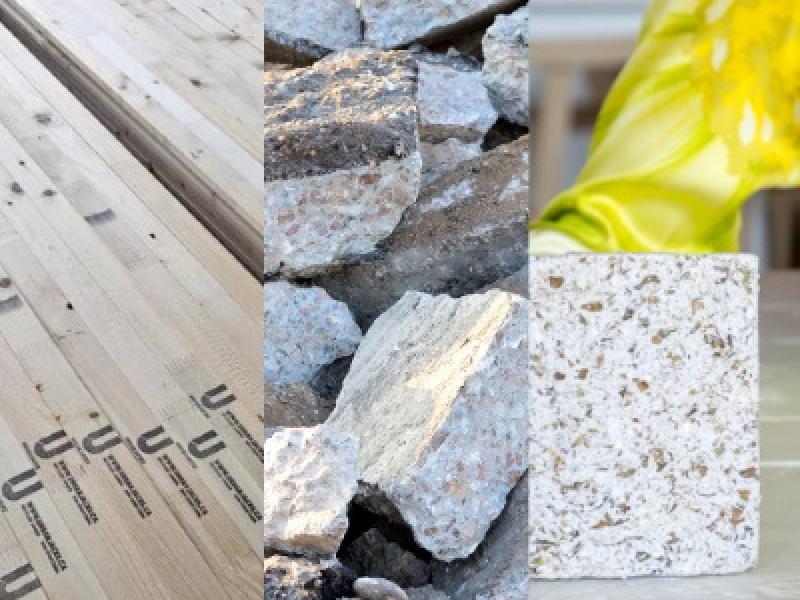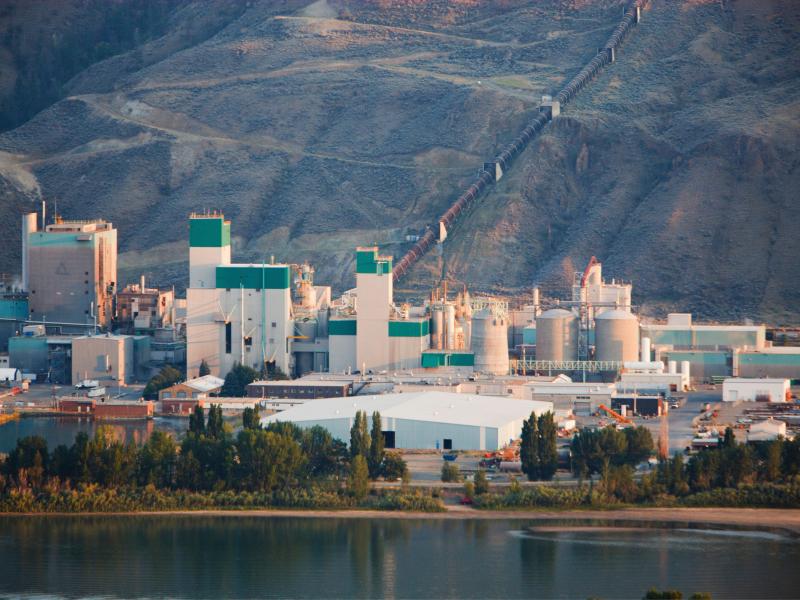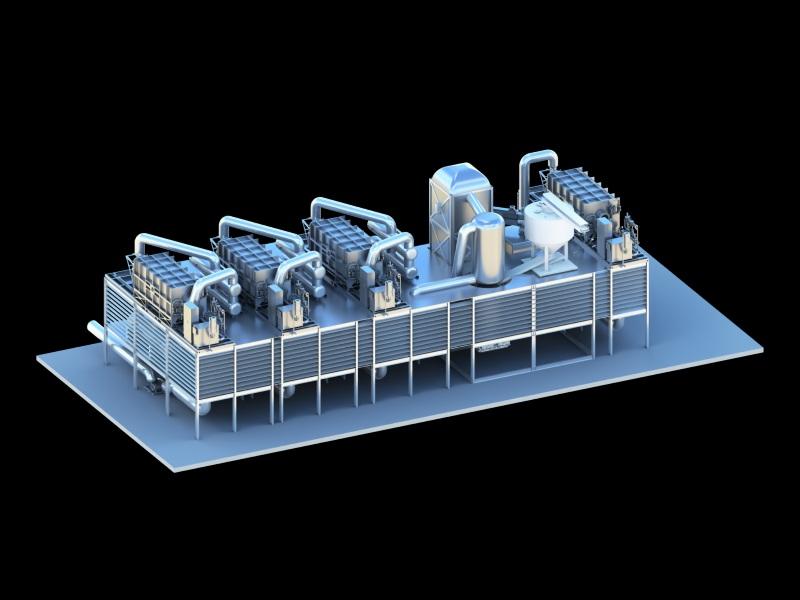Recent Articles
Lithium-ion battery recycler Li-Cycle expands operations
Lithium-ion battery recycler Li-Cycle expands operations
Mississauga, Ont.-based Li-Cycle, a company that bills its technology as “the missing link in the battery supply chain,” plans to scale its lithium-ion battery recycling capacity to 65,000 tonnes by the end of 2023.
Avalon to build lithium refinery in Thunder Bay
Avalon Advanced Materials has found a global financing partner from India to help build a $500-million lithium refinery in Thunder Bay. The $500-million processing plant could be in operation by 2025 and help serve Canada’s electric vehicle market.
Quebec driving schools training the next gen on EVs
As EV adoption rates continue to expand and sales are expected to boom in the coming decades, driving schools in Quebec and other e-roule businesses are filling an important market gap for students now and preparing for the future.
Electrification central theme of latest UN report
• GreenBiz • Sustainable Biz Canada
The good news is that electric vehicles — from motorcycles to buses — are available, getting cheaper, and are super-fun to drive. The bad news: electrifying transport will require continued investment in supporting infrastructure to scale the speed of deployment.
Canada needs $100B more annually to reach net zero
• Global News • Daily Commercial News • Daily Commercial News
Canada needs at least $100 billion more in annual investments to reach its goal of a net-zero economy by 2050, according to the Liberals’ 2022 budget. The spending plan committed an additional $12.5 billion to the fight against climate change.
5 ways Canada can hit Canada’s 2030 emissions goal
Canada’s new 2030 Emissions Reduction Plan (ERP) is a comprehensive, ambitious and transparent policy roadmap for achieving Canada’s climate goals. It uses credible modelling to demonstrate a path to 2030 targets. It’s a big step forward. It’s also not enough.
RBC CEO calls for ‘orderly’ climate transition
• Globe and Mail • Financial Post
As his bank faced a barrage of criticism from investors and Indigenous leaders, an ambitious climate plan to cut emissions and sell cleaner energy “could be the story of Canada’s decade,” RBC chief executive officer Dave McKay said Thursday.
Don’t ditch climate for energy security: investors
• Globe and Mail • Toronto Star
Asset owners managing more than $10.4-trillion have urged governments not to let worries about security of fossil fuel supplies impede the transition to greener energy needed to limit catastrophic climate change.
New OBC ventilation requirements criticized
Concerns are mounting regarding the new Ontario Building Code (OBC). Several building envelope scientists and energy-efficiency experts say the provincial code, based on the 2020NBC, represents a “step backward” and is not outcome-based.
Traceability system for data centres to lower footprint
As data centre operators continue to look for ways to lower their carbon footprint, a material traceability system from Aligned Data Centers is providing a solution. According to the IEA, data centres produce nearly .3 per cent of global emissions.
Why vehicle-to-building tech could help CRE
• Environmental Leader • SustainableBiz.ca
The city of Boulder, Colorado, is trying out a vehicle-to-building technology, which takes electricity from electric vehicles and feeds that into buildings. If successful, the move could reduce the city’s building energy costs.
What we need to consider a circular building design
• GreenBiz
As much as 30 per cent of all construction materials delivered to building sites leaves as waste, according to a report. An analyst argues that countless approaches should be considered together for circular building design.
Feds accelerate build on five transmission projects
The Ontario government is accelerating the development of five new electricity transmission infrastructure projects to power the new Stellantis–LGES battery plant and the growing greenhouse sector in Southwest Ontario.
TransAlta wind project to help power Meta operations
Calgary-based TransAlta is expanding its renewables strategy under a long-term agreement with Meta. The deal, announced Tuesday, will see Meta — formerly known as Facebook — purchase all of the power generated by the 200-megawatt Horizon Hill project in Logan County, Okla.
Solar fabric microgrids catching steam
Imagine fitting 1.3 kW of solar energy in a golf bag, and it’s so light you can carry it around for use where you need it. That’s one of the features that Pvilion is putting forward for its solar product.
Green hydrogen project to provide power to Swiss town
• H2 View
Green Hydrogen Systems (GHS) will support the creation of Gaznat’s Innovation Lab in Switzerland, with the company set to supply electrolysis equipment for hydrogen production.
How controlled burning can restore forests, grasslands
For millennia, Western ecosystems benefited from fire, mostly set by Indigenous people. Now, a movement is growing, particularly in the eastern U.S., to reintroduce controlled burns to forests and grasslands and restore the role of fire in creating biodiverse landscapes.
Cattle helping to manage B.C. wildfire risk with targeted grazing
A handful of ranchers in British Columbia’s Interior are getting ready to graze their cattle in concentrated areas near homes and community infrastructure, where they’ll eat the grasses that dry over the summer and heighten the wildfire risk.
4 ways for cows to have a positive impact
• GreenBiz
Raising livestock or growing their feed has been a key driver of nature loss worldwide. If we want to give the future of native ecosystems a real shot, we need to address the root of the problem.
Solutions to the climate crisis to come from multitudes
• GreenBiz
Climate change is not just a systemic problem; it’s also a leadership crisis. This, according to a report that suggests that world leaders are not yet leading to massive-scale displacement of our carbon-intensive status quo, despite solutions being widely available.
 Industry Events
Industry Events
-
ECO IMPACT 2026
Feb 19 2026
to Feb 20 2026
The Westin Calgary
-
BuildGreen Atlantic
Apr 27 2026
to Apr 28 2026
Halifax, NS
-
The Evergreen Conference
May 06 2026
to May 07 2026
Toronto, ON
-
Building Lasting Change
Jun 17 2026
to Jun 19 2026
Montréal, QC
-
Retrofit Canada Conference
Jun 24 2026
to Jun 25 2026
Halifax Convention Center











